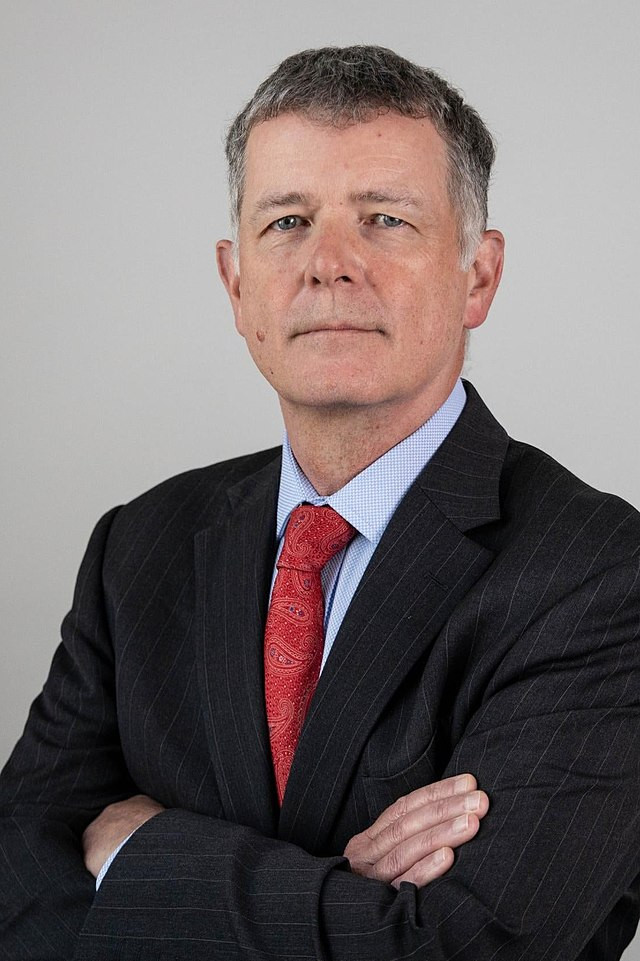Richard Moore, chief of Britain's Secret Intelligence Service, known as MI6, accused Russia of orchestrating a "staggeringly reckless campaign of sabotage" in Europe, endangering the collective security of the West. Speaking in Paris alongside Nicolas Lerner, head of France's external intelligence agency, Moore detailed efforts by Western allies to counter Russian aggression while emphasizing the stakes of failing to support Ukraine.
"We have recently uncovered a staggeringly reckless campaign of Russian sabotage in Europe," Moore said during the event commemorating the 120th anniversary of the Entente Cordiale between Britain and France. He noted that these acts of sabotage, coupled with Russia's nuclear saber-rattling, aim to instill fear about the consequences of aiding Ukraine. "Such activity and rhetoric is dangerous and beyond irresponsible," he added.
Moore warned of dire consequences should Russian President Vladimir Putin achieve his objectives in Ukraine. "If Putin is allowed to succeed in reducing Ukraine to a vassal state, he will not stop there," Moore said. He argued that the repercussions would extend beyond Europe, emboldening adversaries such as China, Iran, and North Korea. "If Putin succeeds, China would weigh the implications, North Korea would be emboldened, and Iran would become yet more dangerous."
Lerner agreed that the ongoing conflict in Ukraine jeopardizes the security of the entire continent. He emphasized the importance of intelligence-sharing between Britain and France in addressing the growing threat posed by Russian actions. Lerner also praised Britain's experience in countering Moscow's aggression, referencing past incidents such as the Salisbury Novichok poisoning in 2018.
Western intelligence agencies have attributed numerous acts of sabotage to Russia in recent months. These include fires caused by incendiary devices at courier hubs in Germany and England, as well as plots targeting Ukrainian-owned businesses in London. NATO and other security officials believe these activities are part of a broader Russian strategy to destabilize Ukraine's allies and undermine their support for Kyiv.
Moore highlighted Russia's increasing military aggression, pointing to missile strikes on Ukraine's energy infrastructure and Putin's recent threats to use a new intermediate-range ballistic missile, the Oreshnik, against "decision-making centers" in Kyiv. He warned that allowing Russia to succeed would embolden similar tactics from other authoritarian regimes.
The MI6 chief also addressed concerns about wavering support for Ukraine among Western allies, particularly in light of comments made by U.S. President-elect Donald Trump. Trump has criticized the Biden administration's extensive aid to Ukraine, suggesting that he could resolve the conflict within 24 hours. Moore countered such skepticism by stating, "The cost of supporting Ukraine is well-known, but the cost of not doing so would be infinitely higher."
Moore underscored the strength of the longstanding intelligence partnership between the United States and the United Kingdom, expressing confidence in its continuation. "For decades, the U.S.-U.K. intelligence alliance has made our societies safer," he said. "I worked successfully with the first Trump administration to advance our shared security and look forward to doing so again."
In his speech, Moore reiterated the need for a unified response to Russia's actions, warning that Western security and stability hang in the balance. He emphasized the critical role intelligence agencies play in calibrating risk and guiding governments in their decision-making processes.
With imputs from agencies.






